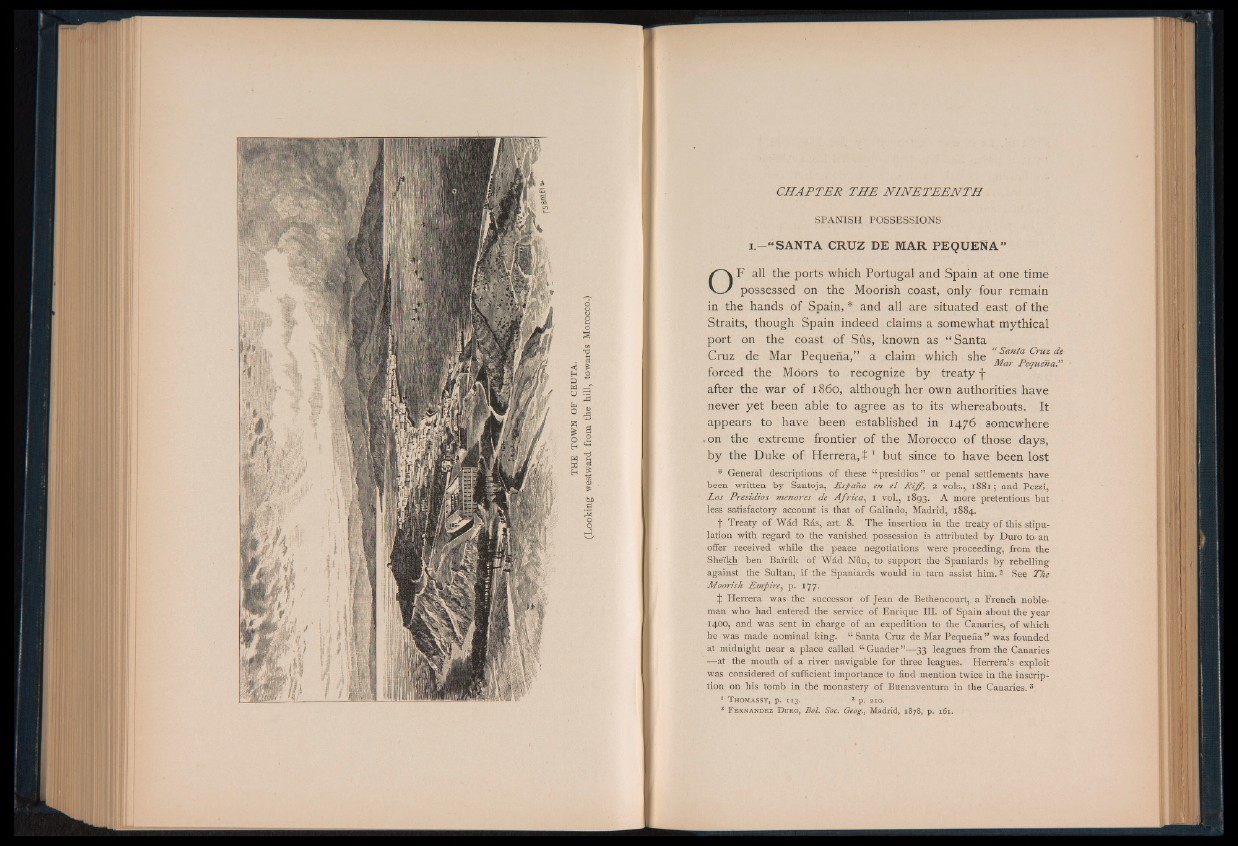
CHAPTER TH E N IN E T E E N TH
SPANISH POSSESSIONS
i . - “ SANTA CRUZ DE MAR PEQUEÑA”
0F all the ports which Portugal and Spain at one time
possessed on the Moorish coast, only four remain
in the hands of Spain, * and all are situated east of the
Straits, though Spain indeed claims a somewhat mythical
port on the coast of Sûs, known as “ Santa
Cruz de Mar Pequeña,” a claim which she Crul de„ ^ _ Mar Pequeña.
forced the Moors to recognize by treaty f
after the war of i860, although her own authorities have
never yet been able to agree as to its whereabouts. It
appears to have been established in 1476 somewhere
.on the extreme frontier of the Morocco of those days,
by the Duke o f Herrera, t 1 but since to have been lost
* General descriptions o f these “ presidios” or penal settlements have
been written by Santoja, España en e l R iff, 2 vols., 1881 ; and Pezzi,
Los Presidios menores de Africa, 1 vol., 1893. A more pretentious but
less satisfactory account is that of Galindo, Madrid, 1884.
f Treaty of Wád Rás, art. 8. The insertion in the treaty of this stipulation
with regard to the vanished possession is attributed by Duro to. an
offer received while the peace negotiations were proceeding, from the
Sheikh ben Baïrük of Wád Nûn, to support the Spaniards by rebelling
against the Sultan, if the Spaniards would in turn assist him.3 See The
Moorish Empire, p. 177.
t Herrera was the successor of Jean de Bethencourt, a French nobleman
who had entéred the service of Enrique III. of Spain about the year
1400, and was sent in charge of an expedition to the Canaries, of which
he was made nominal king. “ Santa Cruz de Mar Pequeña ” was founded
at midnight near a place called “ Guader”—33 leagues from the Canaries
— at the mouth of a river navigable for three leagues. Herrera’s exploit
was considered of sufficient importance to find mention twice in the inscription
on his tomb in thé monastery of Buenaventura in the Canaries. 8
1 T h o m a s s y , p . 1 1 3 . 2 p . 210.
3 F e r n a n d e z D u r o , Bol. Soc. Qeog., Madrid, 1878, p. 161.